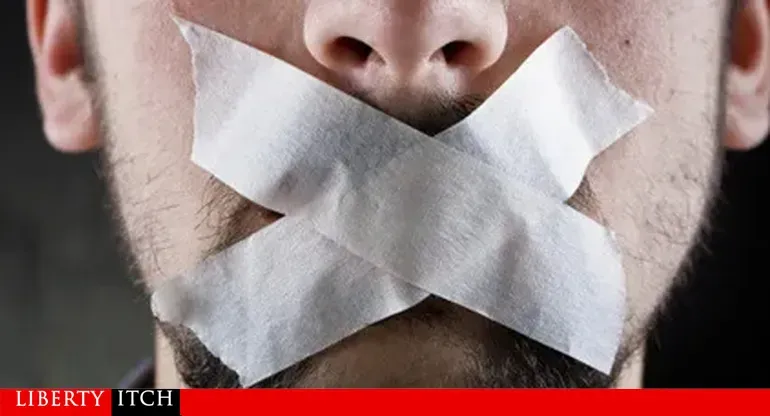Table of Contents
Mark Angelides
The Federal Communications Commission has adopted new rules […] that ban internet providers from discrimination in service coverage based on income level, race, and other protected classes. However, the November 15 decision is merely the opening salvo in a three-pronged attack on digital freedoms pushed by lawmakers, presidential candidates, and the federal government. This was, in fact, a terrible week for online liberty.
Point One: Banning Providers From What?
The FCC released a sweeping rule change that allows the Commission to “investigate possible instances of discrimination of broadband access.” Putting aside for a moment the idea that an internet provider would knowingly refuse to expand its access to paying customers based on some bizarre interpretation of prejudice, the agency is now in the business of determining if a private company’s business decisions are at fault with Diversity, Equity, and Inclusion (DEI) mandates.
This new investigative direction comes courtesy of the 2021 Infrastructure Investment and Jobs Act, which ordered the FCC to take “steps to ensure that all people of the United States benefit from equal access to broadband internet access within the service area of a provider of such service.” Equal access in progressive terms means equality of outcomes, not opportunity to take advantage of services offered. In reality, the only way such a direction could be enforced would be to assume that areas that do not have a high take-up rate are being discriminated against. Certainly, an investigation would likely eliminate the suspicion of bias (consider Amish communities that could have wide broadband usage but don’t), but not before the company’s officers have had to devote time and resources to comply with the probing of the equity commissars.
Point Two: In a New York State of Fear…
New York Governor Kathy Hochul dropped a bombshell on her citizenry, casually announcing the expansion and enforcement of a massive state surveillance program. Speaking at a presser on Monday, November 15, she said:
“We’re very focused on the data we’re collecting from surveillance efforts, what’s being said on social media platforms, and we’ve launched an effort to be able to counter some of the negativity and reach out to people when we see hate speech being spoken about on online platforms.
“Our social media analysis unit has ramped up its monitoring of sites to catch incitement to violence, direct threats to others – and all this is in response to our desire, our strong commitment, to ensure that not only do New Yorkers be safe, but they also feel safe. Because personal security is about everything for them.”
Perhaps most chilling is that her “analysis” team will “reach out to people when we see hate speech being spoken about on online platforms.” Firstly, the team would have to determine who lives in New York and who the people are behind what could be anonymous accounts. This should not be conflated with the incitement or targeting that she later mentions; these are already crimes and do not require additional interference. She is saying that people who post opinions that are against her governing ethos will be approached by state-employed busybodies. But how will they determine who falls under their questionable jurisdiction?
This is where lawsuits come into play. Almost certainly, the state will apply to the courts to force social media companies to hand over personal data. It costs time and money – something the Big Apple is falling rather short of, as demonstrated by Mayor Eric Adams’ recent announcement that he is going to slash budgets for police, schools, and libraries.
Big Sister Governor Hochul apparently doesn’t believe you have the right to online privacy – an opinion shared by a leading GOP primary contender for the White House.
Point Three: No Internet Safe Spaces
Erstwhile South Carolina governor and current presidential hopeful Nikki Haley, fresh off a reassuring performance at the recent GOP debate in Miami, scuppered her momentum this week by announcing that she would end digital anonymity. In a move that even many Democrats would be wary of pushing, she said:
“[E]very person on social media should be verified by their name. First of all, it’s a national security threat. When you do that, people have to stand by what they say. And it gets rid of the Russian bots, the Iranian bots, and the Chinese bots. And then you’re going to get some civility when people know their name is next to what they say.”
At first blush, some might agree with Haley’s position that hiding behind an anonymous avatar leads to uncivilized behavior. However, there is a litany of issues with her plan – named by some internet wits the Patriot Act 2.0 – the least of which being that she would have to force private companies to comply with her wishes. The real meat would be that digital privacy is a thing of the past – say goodbye to whistleblowers, say goodbye to expressing an opinion that the dominant gatekeepers don’t like (and who will gladly hound a person out of their job, family, and yes, life).
Anonymity grants freedom to say what we really think in an environment that is only hostile to free speech. Outing everyone online may make it easier for an overbearing government to keep tabs on the ‘troublemakers’ (an entirely changeable group depending on who is in power), but what it most certainly does not do is expand freedom in any way whatsoever.
Troubling Times in Digiville
The promise of the internet was that it would create a digital village that would bring the world closer together. In some ways it has, but it has also become a place where ideas are created, destroyed, and refined through – sometimes furious – argument. To borrow a phrase from Bernie Sanders talking about bread lines: “That’s a good thing!”
But without the freedom to speak your mind for fear of targeting by activist groups or a petulant federal government, no new ideas will spring forth, no genuine connections will ever be truly made, and no movements for freedom will ever be free from digital interference. In fact, without the safety afforded by anonymity, the grand promise of the internet age is effectively dead in the water, lost beneath the waves of the Bermuda Triangle.









